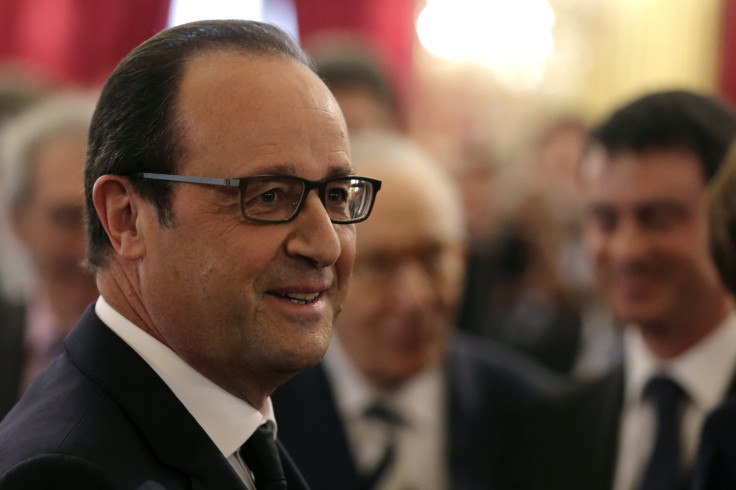Hollande Appears To Confirm ECB Quantitative Easing At Thursday Meeting

French President François Hollande said Monday that a decision by the European Central Bank to start purchasing sovereign debt would be a boon to Europe’s economy. The leader’s comments reinforce expectations that the institution will announce quantitative easing measures this week, according to the Wall Street Journal.
“On Thursday, the ECB will take the decision to buy sovereign debt, which will provide significant liquidity to the European economy and create a movement that is favorable to growth,” Hollande said in a speech to business leaders in Paris. The president’s statement about the ECB’s expected actions come as a surprise given the Frankfurt-based institution’s typically fierce protection of its independence from governments, according to WSJ.
The ECB is widely expected to announce large-scale purchases of government bonds, known as quantitative easing, after its upcoming meeting on Thursday. A spokesman for the institution declined to comment about the announcement following Hollande’s statements.
The French leader has since downplayed his comments about the announcement, with his office releasing a statement saying that he had been referring to the “hypothesis” of quantitative easing and that the policy wasn't certain, while adding that he respected the independence of the ECB, according to the Telegraph.
Hollande has been pushing for easier policy for some time amid his government’s frequent complaints about the strength of the euro. The ECB’s leadership is unlikely to be happy with his intervention or the announcement, said Business Insider, which pointed out that either Hollande had beaten the institution to the announcement or he was wrong and markets would be disappointed.
If the ECB failed to announce a quantitative easing plan Thursday it wouldn't only roil markets but could also destabilize the euro zone, according to the WSJ. Despite reports of resistance from German ECB officials, the institution has nonetheless sent strong signals in recent weeks that it would pursue the policy.
© Copyright IBTimes 2024. All rights reserved.












